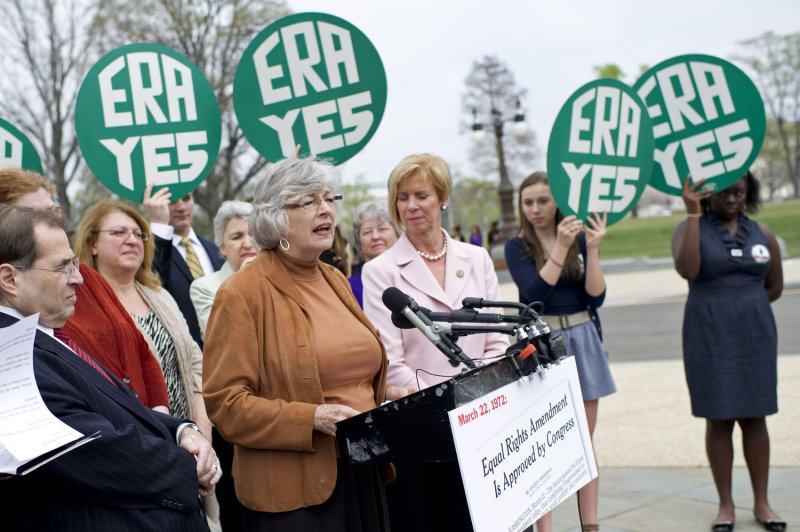Rep. Lynn Woolsey (D-CA) speaks at a rally marking the 40th anniversary of congressional passage of the Equal Rights Amendment (ERA) on Capitol Hill in Washington, D.C. on March 22, 2012. UPI/Kevin Dietsch |
License Photo
March 6 (UPI) -- A federal district judge ruled Friday that the deadline to ratify the Equal Rights Amendment "expired long ago" and that that three states' recent ratifications of the amendment do not count.
Last year Virginia, Illinois and Nevada -- which had recently ratified the ERA -- sued the archivist of the United States to "carry out his statutory duty" of certifying it as 28th Amendment to the Constitution.
The states' attorneys general argued that Congress' imposed deadline to ratify the amendment has not lapsed, because the amendment's body text does not include a time frame.
They also argued that the Constitution doesn't give Congress the power to decide when a state ratifies an amendment.
The Constitution says constitutional amendments are valid once ratified by three-fourths of the states.
When Congress passed the ERA in 1972, it included a seven-year deadline for states to ratify the bill.
The deadline was later extended to 1982, but even by then, just 35 states signed off on the ERA, which states, "Equality of rights under the law shall not be denied or a abridged by the United States or any state on account of sex."
The amendment would also give Congress power to pass laws enforcing the provision.
In Friday's ruling Judge Rudolph Contreras of the federal district court in Washington, D.C., said a ratification deadline in the introduction "is just as effective as one in the text of a proposed amendment."
Virginia's attorney general, Mark Herring, said he was considering whether or not to appeal the ruling.
"The women of this country have waited over two centuries to be afforded equal protections under this country's founding document, and with today's decision they will now be forced to wait even longer. That's just wrong," he said.















